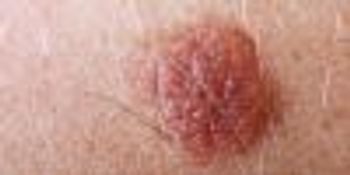
Preventive measures and herd immunity are having a major impact on disease prevalence.

Preventive measures and herd immunity are having a major impact on disease prevalence.

Current treatment addresses the damage caused by thromboembolic events.

A test of combinations of hundreds of agents, including statins, on metastatic melanoma cells found a number of combinations that showed promise.

Many patients who self-report aspirin allergies are actually experiencing less serious adverse reactions such as gastrointestinal discomfort and bleeding, and proton pump inhibitors can help solve these problems.

A functional magnetic resonance imaging (fMRI) study suggests that the antiepileptic drug topiramate impairs some language functions by preventing the deactivation of certain parts of the brain during cognitive tasks.

Regular injections of monophosphoryl lipid A, a vaccine adjuvant, reduced cerebral amyloid beta in a mouse model of Alzheimer's disease by up to 80%.

A new study using a mouse model suggests that an inflammatory response to influenza infection makes patients more susceptible to developing invasive pneumococcal disease.

Diabetes patients appear to be at significantly increased risk of experiencing proton pump inhibitor (PPI) failure. In addition, PPIs may be an effective means of increasing glycemic control in diabetes patients.

An international consortium of researchers has discovered 3 genetic anomalies associated with primary angle closure glaucoma (PACG), which may help lead to the development of new treatments.

The cancer drug bexarotene (Targretin) has shown dramatic effects on Alzheimer's-like symptoms in a mouse model, but it is too early to prescribe it for humans with Alzheimer's.

A pair of studies that aimed to determine whether nonsteroidal anti-inflammatory drugs (NSAIDs) can reduce the risk of skin cancer have produced conflicting results.

Due to their increased susceptibility to pneumococcal pneumonia and invasive pneumococcal disease, welders are advised to receive the 23-valent pneumococcal polysaccharide vaccine.

A study of epilepsy patients who switched from one antiepileptic drug (AED) to another suggests that the switch did not tend to improve seizure control and may have worsened it.

According to the results of a study, it appears more difficult to eradicate nasopharyngeal carriage of pneumococcal and other bacterial diseases than it is to eradicate invasive disease.

The addition of Fycompa (perampanel) to the approved list of epilepsy drugs will broaden treatment options for patients.

The pharmacist can serve as an essential care provider for elders when disasters occur.

Alzheimer's may be the most recognized form, but it does not account for all dementias in the elderly.

Dandruff, lice, and ringworm can bring parents to the pharmacy counter looking for solutions.

Your counseling sessions have more impact with persuasive language.

Heart health may be improved by improving oral hygiene.

Two drugs under review by the FDA-dabrafenib and trametinib-seem to slow development of treatment resistance in patients with metastatic malignant melanoma.

A new study indicates that starting HRT within 5 years of the onset of menopause is key to producing a neuroprotective effect.

A study of adults with invasive pneumococcal disease suggests that smokers and those who abuse alcohol should be targeted for pneumococcal vaccination.

This complex condition can be managed with improved glucose control and pharmacologic therapy.

Researchers are pursuing a variety of treatment options for the significant portion of patients whose reflux symptoms continue despite taking proton pump inhibitors.

Melanoma accounts for just 5% of skin cancer cases, but 3 times as many deaths as all non-melanoma skin cancers combined.

The app for iPhone and iPad allows users to use whole body photography to track moles that may develop into melanoma.

A T-cell usually associated with allergies and asthma may be effective in fighting melanoma, according to the results of a recent study.

Researchers at Washington University in St. Louis have developed a genetic test to help predict survival odds for patients with ocular melanoma.

Combination therapy with the BRAF inhibitor vemurafenib and immunotherapy appears to produce improved results in a mouse model.